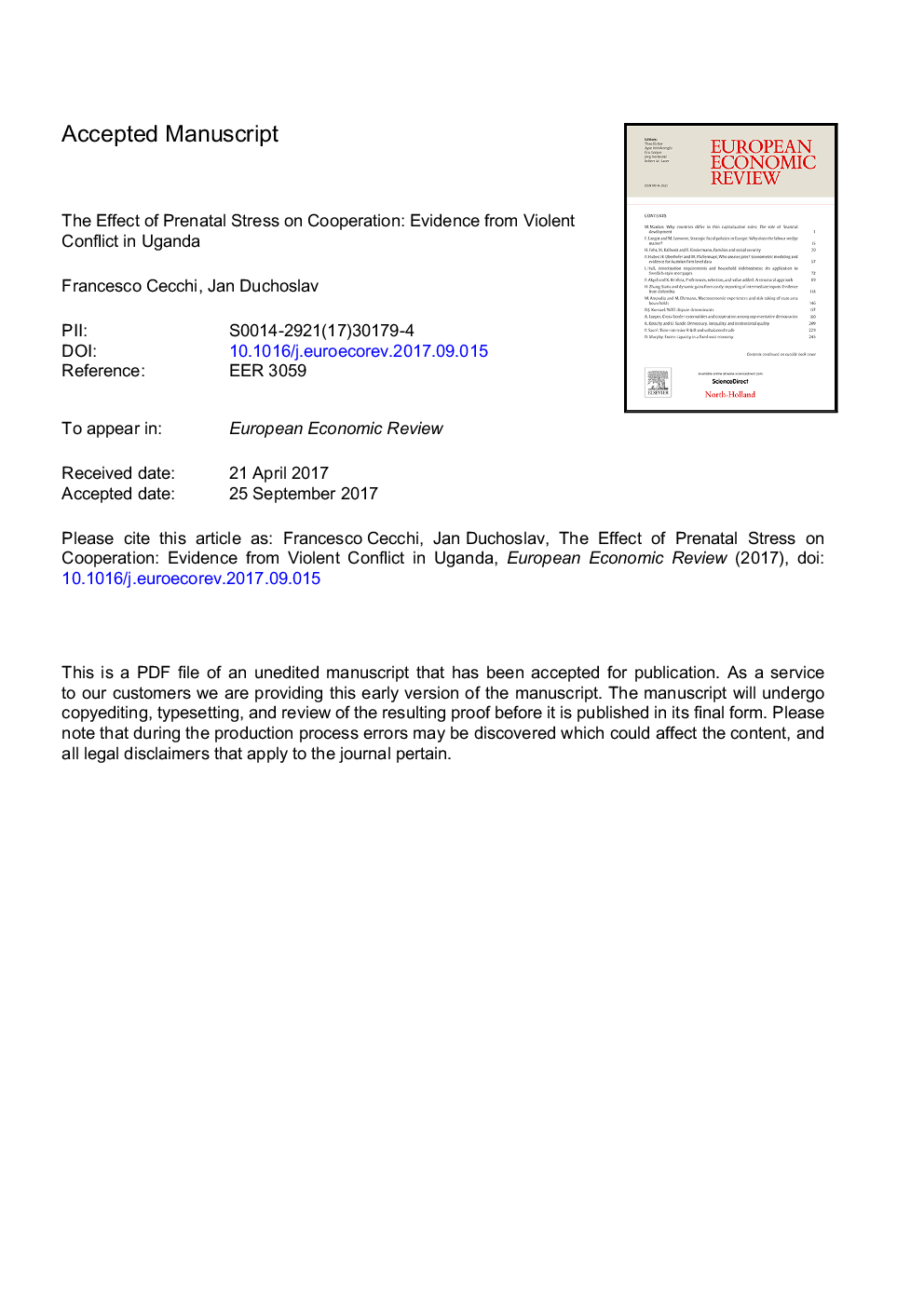| Article ID | Journal | Published Year | Pages | File Type |
|---|---|---|---|---|
| 7351583 | European Economic Review | 2018 | 32 Pages |
Abstract
Are preferences endogenously determined in the womb? We play a public goods game with Ugandan children born during a conflict characterised by high civilian victimisation. Children whose caregivers suffer from post-traumatic stress disorder are more likely to free-ride in the game. Genetic and environmental factors alone do not explain the relationship, but children's 2D:4D digit ratio - a marker of fetal hormone exposure associated with epigenetic effects of maternal distress - does. Our findings extend the fetal origins literature to the domain of preferences. By reducing next generation's taste for cooperation, conflict may have father-reaching economic consequences than previously thought.
Related Topics
Social Sciences and Humanities
Economics, Econometrics and Finance
Economics and Econometrics
Authors
Francesco Cecchi, Jan Duchoslav,
